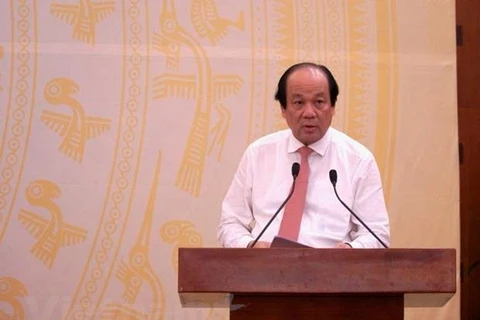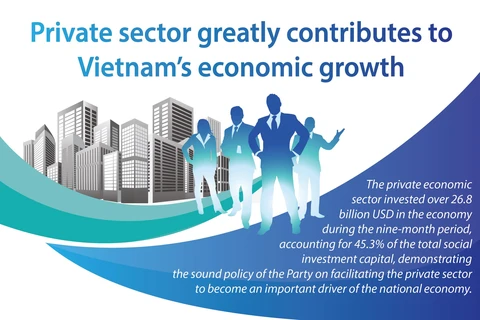Hanoi (VNA) – Prime Minister Nguyen Xuan Phuc has approved a plan to boost the sustainable development of the private business sector towards 2025 with a vision to 2030 with six major solutions.
The solutions include continuing to improve the investment and business environment to ensure trust and promote the sustainable operation of private firms, encouraging businesses to apply sustainable models and cleaner production technology, and saving natural resources and protecting the environment.
The plan underlines the promotion of innovative startups and the effective implementation of policies supporting small and medium sized enterprises, as well as increasing the capacity of governing and business management boards.
Private firms will be encouraged to apply advanced technologies and exploit opportunities brought about by the Fourth Industrial Revolution, while business associations will play a greater role in assisting private companies to develop in an efficient and sustainable manner, according to the plan.
The solutions are designed to increase the quality and efficiency of private businesses, creating a firm foundation and important motivation for national socio-economic development.
The plan targets at least 1.5 million firms by 2025 and 2 million by 2030, as well as stronger connectivity among private firms.
In 2030, the gap in technology, human resources and competitiveness among businesses is expected to have reduced, while the ratio of firms joining regional and global production and value chains is hoped to match those in leading ASEAN countries (ASEAN 4).
The plan targets that in the 2021-2030 period, the private sector will see 6-8 percent expansion in the number of employees per year, while the average growth in income of labourers is expected to reach 25-30 percent per year. The sector’s contribution to the State budget is also hoped to increase 23-25 percent annually.
The PM asked ministries, sectors and localities to integrate the solutions into national target programmes to optimize resources.
The People’s Committees of provinces and cities were also requested to allocate human resources and an annual budget for the implementation of the solutions./.
VNA























